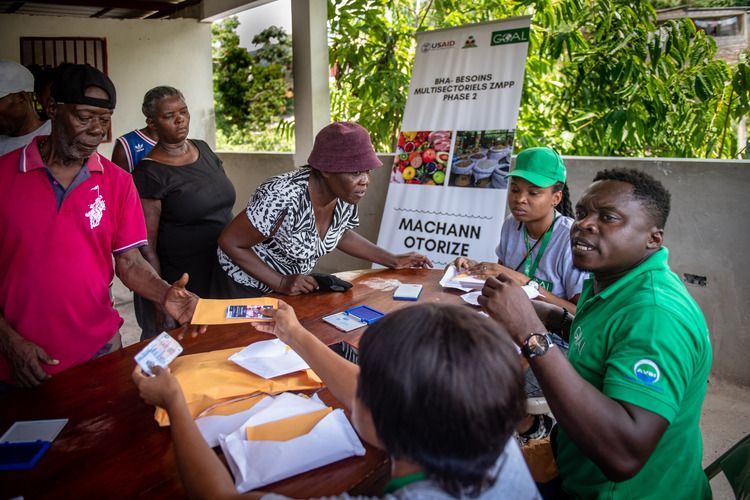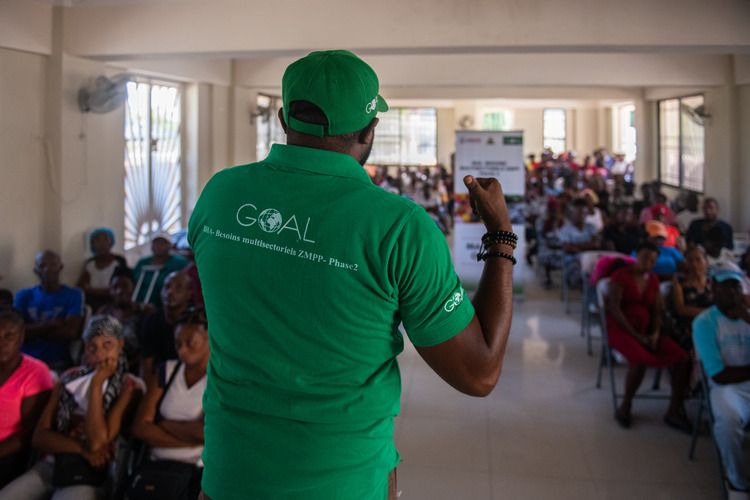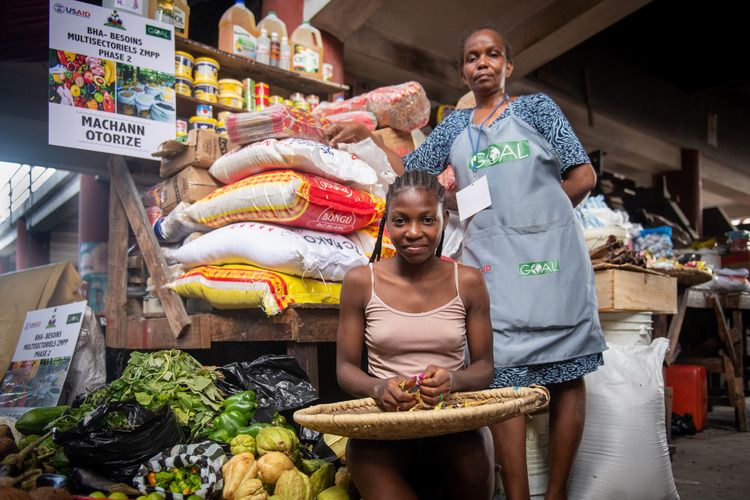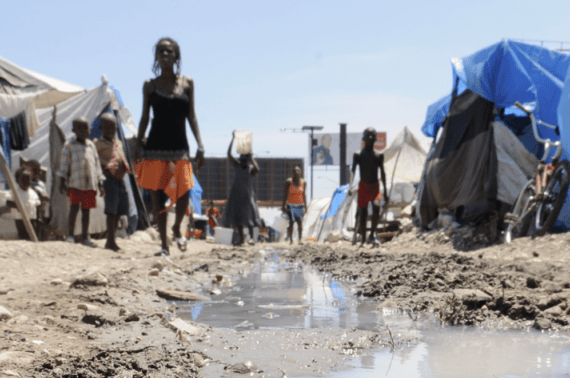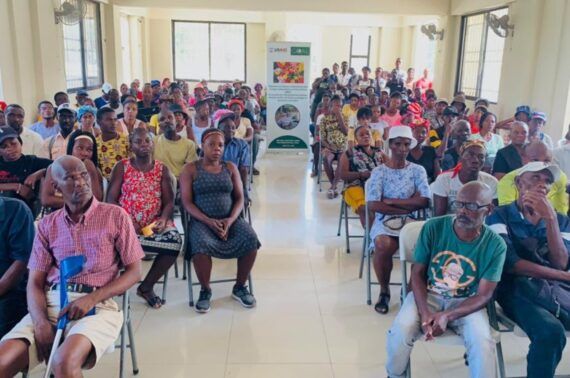GOAL has been operating in Haiti since the catastrophic earthquake in 2010. Today, millions of people are still rebuilding their lives after the 2010 earthquake, Hurricane Matthew, which hit Haiti in 2016 and the 2021 earthquake, which brought further destruction and devastation.
GOAL Haiti programmes concentrate on basic humanitarian needs, community preparedness and resilience.
In April 2023, GOAL announced a major combined grant from USAID, Irish Aid, UNICEF and ECHO to scale up a massive emergency response in Haiti, in the wake of political instability, gang violence, a cholera resurgence and dire levels of food insecurity and hunger, affecting 4.9M people.
Our achievements
- Securing of combined grant from USAID, Irish Aid, UNICEF and ECHO in March 2023, to scale up a massive emergency response in Haiti, in the wake of political instability, gang violence, a cholera resurgence and dire levels of food insecurity and hunger, affecting 4.9M people.
- Aims to reach 500,000+ people in the next 12 months, mostly in and around Haiti’s capital, Port-au-Prince.
- Immediate emergency response following the 2010 and 2021 earthquakes, and Hurricane Matthew in 2016.
- Building of 2,000 transition shelters for 10,000 people following the 2021 earthquake.
- Infrastructural improvements to build community preparedness in Port au Prince, including the construction of evacuation stairs, footbridges, paved evacuation routes, retaining walls, and drainage canals.
